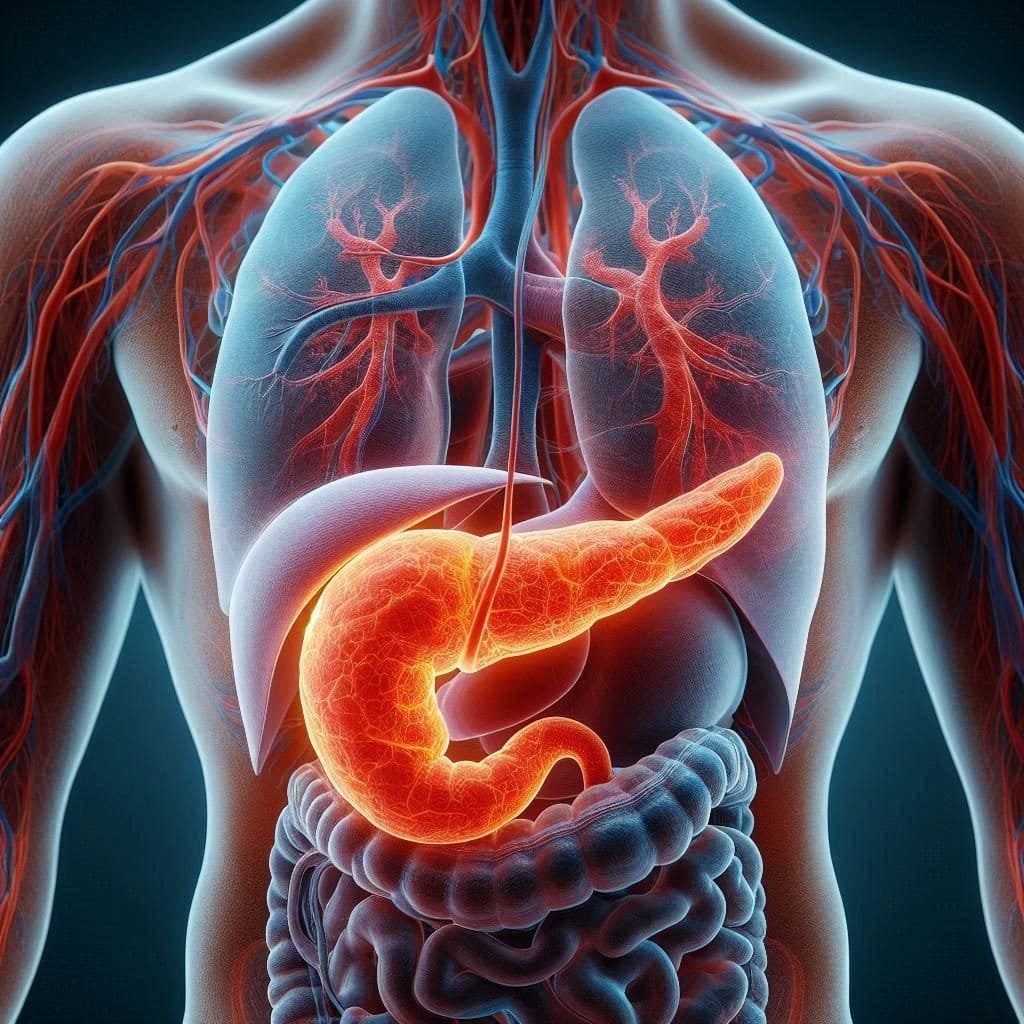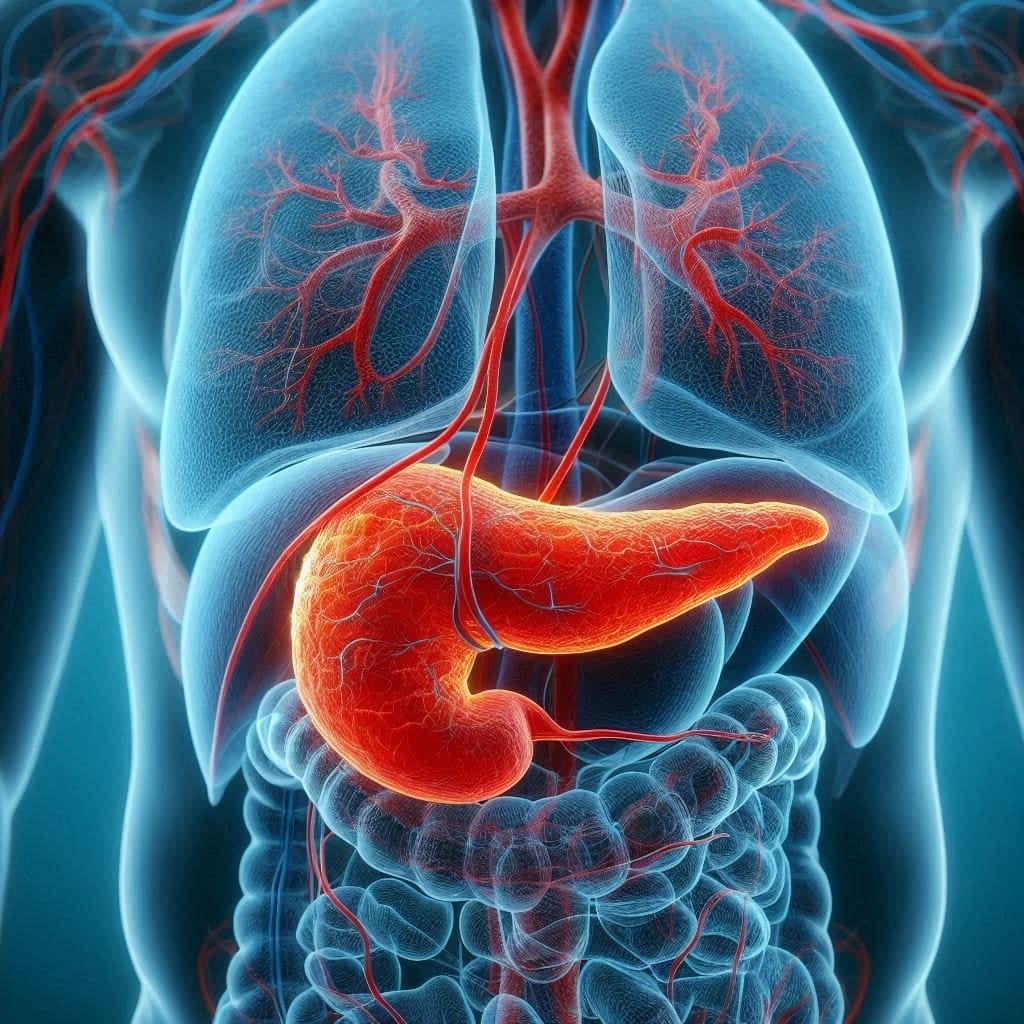Chronic Pancreatitis
Indeed, chronic pancreatitis is presumably going to end up being less outstanding than perhaps a couple disorders, yet it definitely can impact the state of prosperity of a given person. Chronic pancreatitis, as the name suggests, is a condition with long-stretch bothering of the pancreas organ. Without consuming a lot of time in this article, let me figure out the going with comprehensively:
By then, at that point, you are presumably going to have cultivated a more significant impression of this perplexing disorder and the ramifications for individuals that are affected by the illness.
Chronic pancreatitis might be depicted as the excessively long disturbance of the pancreas, which has a fundamental impact on the handling system as well as glucose control. Not by any stretch of the imagination like serious pancreatitis that is extreme and self-limiting, chronic pancreatitis is enduring and might perhaps hurt the pancreas for a lifetime.

What is chronic pancreatitis?
For this, an evaluation of a piece regarding chronic pancreatitis is fundamental, for to get it, we ought to at first have some familiarity with the pancreas. The pancreas The pancreas is an inside organ that incorporates both an exocrine and an endocrine organ, which is solidly arranged in the stomach.
This, the body internal organ set some place close to the stomach region at the back, approaches a couple of stomach-related substances and engineered materials, including insulin for the rule of glucose. Pancreatic disorder is the condition where reliable irritation causes the consistent debilitating of the pancreas’ handiness, known as chronic pancreatitis.
It is to be seen that chronic pancreatitis, fairly, impacts the pancreatic tissue and incapacitates the organ’s fundamental abilities. This may accordingly cause issues with issues with the maintenance and rule of glucose. Over an extended time, the pancreatitis achieves starvation, diabetes, and various effects.
Reasons for Chronic Pancreatitis
The cause of chronic pancreatitis has to be hypothetical so as to avoid the occurrence and treat the disease. Genetic variables: There are some genetic variations that strive to increase the contribution of developing chronic pancreatitis.
Autoimmune problems:
Occasionally, the body’s immunologically naive system may turn against the pancreas and cause a continual inflammation process.
Recurrent intense pancreatitis:
Severe recurrent pancreatitis can cause chronic pancreatitis, of course, after several episodes of the severe form of the disease.
Chronic pancreatitis has the following side effects:
Some of the symptoms of chronic pancreatitis change from one person to another and develop actions gradually over time. Some people may experience severe consequences, while others may get a mild effect. Here are a few normal signs and side effects to know about:
Abdominal agony: This is much of the time the most conspicuous symptom and may easily be observed by anyone whose perception is acute enough to observe slight changes in the countenance. It may be continuous or intermittent and may worsen after eating.
Weight misfortune: Due to some problems with the way it takes and how it is swallowed with supplements.
Diarrhea: Stools may be sleek or oily due to rather unfortunate fat consumption.
Nausea and retching: These side effects can however occur, more so during periods of torment.
Diabetes: In the mean time, since the pancreas gets affected, it cannot produce enough insulin that leads to diabetes.
Malnutrition: Inad-hoc retention of supplements may lead to lacks of nutrients and hunger.
Jaundice: Jaundice might result in the event that a blockage occurs in the bile conduit, making the skin and the eyes turn yellow.
Fatigue: Incessant irritation and absence of sound sustenance can result in industrious drowsiness.
Mood changes: Sustaining constant pain and gastrointestinal problems are enough to cause despair and anxiety.
It is important that these side effects may be similar to those of other stomach-related diseases, and therefore, before concluding, the patient should seek the services of a health care practitioner.
Findings of Chronic Pancreatitis
Identifying chronic pancreatitis might not be easy, especially in the early stages of the condition, as physical modifications to the pancreas are not easy to detect. Specialists utilize a blend of strategies to analyze this condition:
Medical history and actual test: Some information about the side effects, clinical history, and way of life factors like liquor utilization will be imparted to your PCP.
Blood tests: These can check for elevated levels of pancreatic enzymes and signs and symptoms of ill health.
Stool tests: Of these, it can assist in deciding if the body loses and retains fat as well as the variety of supplements.
ERCP (endoscopic retrograde cholangiopancreatography): This strategy can diagnose and, in some instances, remedy situations in the bile and pancreatic vessels.
Pancreatic capability tests: These specific tests can be those that offer an actual view of how effectively your pancreas is transferring stomach-related proteins.
Thus, early diagnosis of chronic pancreatitis is crucial in order to have effective treatment and timely prevention of complications.

Chronic pancreatitis: Treatment Selecting
Unfortunately, there is no cure for chronic pancreatitis, but various medications can help the symptoms be managed, prevent complications, and improve the quality of life. The treatment plan frequently includes a mix of approaches:
- This may include ordinary or remedy distress medicines, and by times special strategies to block distress from the pancreas.
- A restricted-fat diet and brief, consistent meals will help to rid weight off the pancreas. Way number one: Working with a dietitian can be very helpful.
- These can help your body in digestion and absorption of foods and other nutrients, as well as in the retention of some supplements.
Insulin: If diabetes makes, then insulin treatment may be necessary in managing the amount of glucose in the body.
Vitamins and nourishing enhancements: These can help to cater for well-nourished deficiencies occasioned by malabsorption.
Lifestyle changes: avoidance of smoking and abstaining from taking alcohol are some of the measures needed when it comes to managing chronic pancreatitis.
Endoscopic strategies: occasionally, procedures to remove the causes of blockages or the channel pimples in the pancreas may be required.
Surgery: In severe cases, operations could be advised to relieve pain or untangle distinctions.
Obviously, it is necessary to consult with a particular medical care team to develop and modify the therapy regimen based on the context.
Living with Chronic Pancreatitis
- Follow your treatment plan: Accept the medications and go to all the following settings.
- Avoid liquor and tobacco. It does mean that these substances can dismantle pancreatic harm.
- Manage pressure: That tells me that when one is in ongoing circumstances, things can be upsetting. Some of the pressure-decrease procedures one can consider include reflection and yoga, among others.
- Join a care group: Sharing with other people those who suffer from chronic pancreatitis can be very beneficial in terms of emotional support and practical advice.
- Stay dynamic: Routine can help in managing pain and improving health in general.
- Monitor your psychological wellness: In the event that you have any fears or sadness, ideally see an expert in the field of mental well-being.
Anticipation of Chronic Pancreatitis
While not all instances of chronic pancreatitis can be prevented, there are steps you can take to diminish your risk:
- Limit liquor utilization: If you drink liquor, do as such moderately or preferably don’t at all with the best of your effort.
- Don’t smoke: If you smoke, please stop smoking. If you do not smoke, then do not start, and this should be the right advice to give to the patients.
- Eat a sound eating regimen: low fat consumption and high fiber intake, accomplished by taking a lot of new produce and entire grain nourishments, keeps the pancreatic condition in check.
- Maintain a solid weight: Obesity may increase the risk of pancreatic problems.
- Manage other medical issues: This monitors conditions that are normally present, such as high fatty oils.
- Stay hydrated: Staying hydrated is something that can help with keeping the stomach-related framework in great working condition.
- Regular check-ups: Pancreatic problems can be prevented early because ordinary check-ups contain simple clinical examination.

Conclusions
Chronic pancreatitis is a rather complex disorder, and it seems reasonable to build on what has been learned.
Without a doubt, finding and treatment at an early stage should help in avoiding further complications and boost outcomes. Still, do not worry about it because in this journey you are not alone—there are several medical services specialists, support groups, and resources to help you navigate life with chronic pancreatitis.
FAQs
Is it Possible to Have Chronic Pancreatitis Progress to Pancreatic Malignant Growth?
Occasionally, chronic pancreatitis itself isn’t a malignant disease; however, it augments the risk of developing pancreatic cancer. It is therefore advisable to take a customary observing and revisit your medical care supplier.
Does the chronic pancreatitis have genetics?
There are two types of chronic pancreatitis, which can be inherent due to certain genetic changes. If you, for instance, have a family history of pancreatic problems, it is perhaps wise to discuss this with your doctor.



